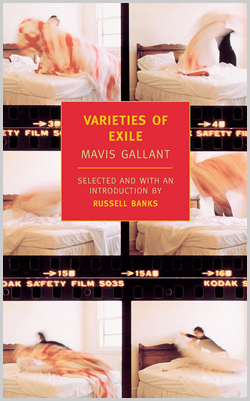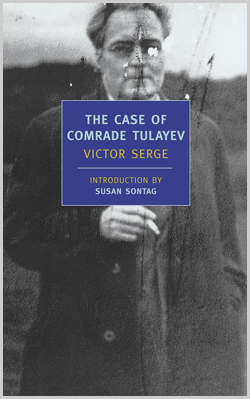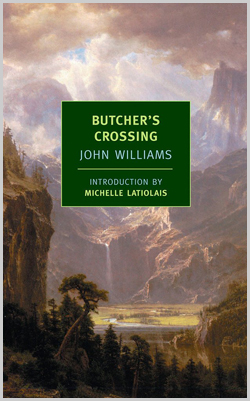Malvern staff member Fernando is a New York Review Books Classics enthusiast, and he has an excellent recommendation for y’all…
 Varieties of Exile by Mavis Gallant
Varieties of Exile by Mavis Gallant
Perhaps overshadowed by her contemporary Alice Munro—another female, Canadian writer of short stories—Mavis Gallant’s work deserves a wider readership. To date, NYRB Classics has released four collections of her work, all filled with nuance and comic moments of deep humanity. I’ve never read anything written quite the way her stories unfold, how encounters with peripheral people in our lives also shape us. Varieties of Exile is a good introduction, although I would say Paris Stories (which collects the work she wrote while living in that city) is a good place, too.
Also recommended, the short story collection You’ll Enjoy It When You Get There by Elizabeth Taylor. (Not that Elizabeth Taylor!)

 Sometimes the dirty politics of your time catch up to your immediate reality. Just ask Russian anarchist writer Victor Serge (1890 – 1947). He lived in Paris as a young man, then in 1919 traveled Russia supporting the Bolshevik revolution. In 1933, after a few imprisonments, he was deported and settled in France, where he began his career as a novelist. This is his last novel, which stirs together the themes Serge explored his entire life, revolving around the Soviet Great Terror of the early 20th Century. Perfect for fans of political thrillers. In the same vein, check out
Sometimes the dirty politics of your time catch up to your immediate reality. Just ask Russian anarchist writer Victor Serge (1890 – 1947). He lived in Paris as a young man, then in 1919 traveled Russia supporting the Bolshevik revolution. In 1933, after a few imprisonments, he was deported and settled in France, where he began his career as a novelist. This is his last novel, which stirs together the themes Serge explored his entire life, revolving around the Soviet Great Terror of the early 20th Century. Perfect for fans of political thrillers. In the same vein, check out  There’s something like a quiet magic in the art of the “meaning of life” western, as opposed to a violent, shoot-em-up kind of western. This book is perhaps the kind of western Herman Melville would have written—it retains elements of realism yet elevates moments into the realm of the epic:
There’s something like a quiet magic in the art of the “meaning of life” western, as opposed to a violent, shoot-em-up kind of western. This book is perhaps the kind of western Herman Melville would have written—it retains elements of realism yet elevates moments into the realm of the epic: